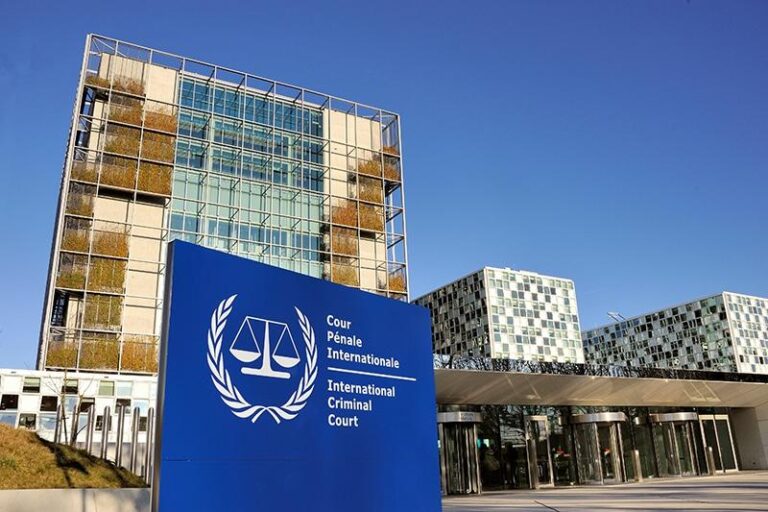The United States has recently imposed new sanctions targeting the International Criminal Court (ICC), drawing sharp criticism from global legal experts and human rights advocates who decry the move as a “flagrant attack” on the court’s judicial independence. The ICC, tasked with prosecuting serious international crimes such as genocide and war crimes, has long faced political pressures, but this latest action marks a significant escalation in tensions between the court and Washington. This development raises critical questions about the future of international justice and the ability of the ICC to operate free from external interference.
Impact of US Sanctions on the International Criminal Court’s Judicial Autonomy
The imposition of fresh U.S. sanctions on the International Criminal Court (ICC) has sparked widespread condemnation from legal experts and international observers who view the move as a severe infringement on the ICC’s ability to function independently. These measures specifically target judges and officials involved in investigations related to U.S. personnel, raising concerns about external interference that jeopardizes the court’s impartiality and its foundational commitment to uphold justice without political pressure.
Key implications of the sanctions include:
- Restricted operational capacity due to threats of personal sanctions on ICC personnel
- Potential deterrence of international cooperation essential for executing court mandates
- Undermining of global legal norms that protect judicial autonomy
- Risk of politicizing international justice mechanisms
| Aspect | Potential Impact |
|---|---|
| Judicial Independence | Compromised by external political pressures |
| International Cooperation | Reduced willingness of states to engage |
| Case Proceedings | Delays and increased challenges in evidence gathering |
| Global Perception | Decreased confidence in ICC’s neutrality |
This strategic attempt to influence judicial outcomes is widely regarded as a “flagrant attack” on the ICC, challenging the integrity not only of ongoing investigations but also the broader international legal order. The sanctions risk setting a dangerous precedent that could embolden other nations to leverage economic and diplomatic pressure against multilateral legal institutions, thereby eroding mechanisms designed to hold violators accountable on the world stage.
Global Reactions and Diplomatic Challenges Emerging from the Sanctions
The imposition of new US sanctions against the International Criminal Court (ICC) has unleashed a wave of global consternation, with several nations and international bodies condemning the move as an unprecedented assault on the court’s autonomy. Diplomatic circles have voiced deep concern over the potential repercussions these sanctions might have on the ICC’s ability to carry out impartial judicial proceedings, especially regarding cases involving US personnel or allies. Many diplomats stress that this aggressive stance jeopardizes decades of efforts to uphold international justice and could undermine cooperation on critical war crimes investigations.
- European Union: Reaffirmed strong support for the ICC, warning that the sanctions jeopardize the rule of law on a global scale.
- African Union: Highlighted risks of politicization in justice enforcement and called for dialogue to defuse tensions.
- Human Rights Organizations: Labelled sanctions as a political tactic which threatens victims’ access to justice.
| Region | Key Reaction | Diplomatic Action |
|---|---|---|
| Europe | Condemnation of sanctions | Calls for multilateral support to ICC |
| Africa | Concern over politicization | Proposal for mediated discussions |
| Asia-Pacific | Calls for judicial independence | Neutral diplomatic engagement |
The diplomatic landscape is further complicated by the need for states to balance their geopolitical interests and their commitments to international law. Countries allied with the US face mounting pressure to reconcile their support for the ICC while managing the diplomatic fallout from Washington’s punitive measures. This divergence has sparked a series of high-stakes negotiations aiming to preserve the ICC’s legitimacy without escalating tensions. As the global community grapples with these challenges, efforts to reinforce the court’s independence and shield it from political interference are becoming increasingly urgent.
Legal Experts Warn of Consequences for International Justice Mechanisms
Legal authorities and international human rights advocates have decried recent U.S. sanctions targeting officials and institutions associated with the International Criminal Court (ICC). Described as a direct challenge to the Court’s autonomy, these measures threaten to undermine the foundational principles of international justice. Experts emphasize that such political interference not only hampers ongoing investigations but also jeopardizes the credibility of global judicial mechanisms entrusted with accountability for war crimes and crimes against humanity.
Key concerns raised include:
- Potential erosion of judicial independence through external pressure
- Chilling effect on international cooperation in prosecuting serious human rights violations
- Undermining the ICC’s ability to function effectively without fear of retaliatory sanctions
| Impact Area | Implication |
|---|---|
| International Relations | Increased diplomatic tensions and fragmented alliances |
| Rule of Law | Compromised investigations and prosecution efforts |
| Victims’ Rights | Diminished prospects for justice and reparations |
Calls for Strengthening Support to Uphold the ICC’s Independence and Mandate
The imposition of new US sanctions against the International Criminal Court (ICC) has sparked widespread condemnation from the global legal community and human rights defenders. These punitive measures are seen not just as a political maneuver but as a direct attack on the court’s judicial independence, undermining its essential role in holding perpetrators of serious crimes accountable. Legal experts argue that such actions could set a dangerous precedent, jeopardizing international justice mechanisms and threatening the broader framework of global accountability.
- Global outcry: Governments, civil society, and international organizations have called for reinforcing safeguards to protect the ICC from external interference.
- Mandate clarity: Reaffirming the court’s mission to pursue impartial justice, regardless of political pressure.
- Support mechanisms: Calls to increase financial, diplomatic, and technical assistance to secure the ICC’s operational independence.
| Aspect | Impact | Recommended Action |
|---|---|---|
| Sanctions | Hamper judicial processes | Seek multilateral diplomatic campaigns |
| Judicial Independence | Threatened by political pressure | Strengthen legal protections |
| International Support | Crucial for operational viability | Increase funding & technical aid |
Closing Remarks
As tensions escalate between the United States and the International Criminal Court, the newly imposed sanctions underscore a deepening rift over issues of sovereignty and international justice. Critics argue that these measures represent a direct challenge to the ICC’s mandate and judicial independence, raising concerns about the future efficacy of global legal institutions. As the international community watches closely, the outcome of this standoff may well shape the dynamics of accountability and cooperation on the world stage in the years to come.




